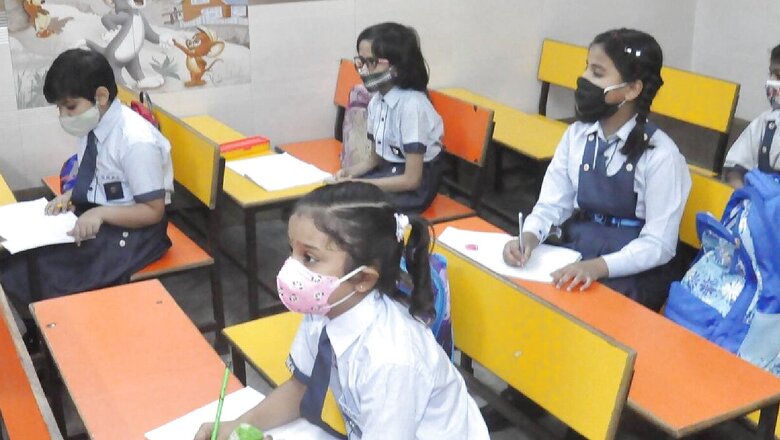
views
Fatigue, stomach aches, mood swings, trouble remembering, and rashes are among the top symptoms of long Covid among children aged 0-14 years, a study has found.
It confirms that children found positive can experience symptoms of long Covid lasting at least two months.
The study, which claims to be the largest to date of long Covid symptoms in children aged 0-14 years, investigated the duration of the symptoms alongside quality-of-life scores.
Published in The Lancet Child and Adolescent Health, the research confirmed that children with a positive Covid test are more likely to experience at least one symptom lasting longer than two months following infection than children who had never been diagnosed with the disease.
The study used a national-level sampling of children in Denmark and matched Covid-19 positive cases with a control group of children with no prior history of the infection.
It found that in older age groups (12-14 years), quality-of-life scores were higher and reports of anxiety were lower for children who had tested positive for Covid-19 than kids who had not, likely linked to awareness about the pandemic and societal restrictions.
Authors of the study believe that knowledge of the burden of long Covid in children is essential to guide clinical recognition, caregiving strategies, and societal decisions such as lockdowns and vaccination.
Most previous studies of long Covid in young people have focussed on adolescents, with infants and toddlers seldom represented.
The authors recommend further research to better understand the long-term consequences of the Covid-19 pandemic on all children.
“The overall aim of our study was to determine the prevalence of long-lasting symptoms in children and infants, alongside quality of life, and absence from school or day care,” said an author and professor, Selina Kikkenborg Berg, Copenhagen University Hospital, Denmark. “Our results reveal that, although children with a positive Covid-19 diagnosis are more likely to experience long-lasting symptoms than children with no previous Covid-19 diagnosis, the pandemic has affected every aspect of all young people’s lives.”
How the study was conducted
In this research, surveys were sent to the mothers or guardians of children between 0-14 years who had tested positive for Covid between January 2020 and July 2021.
The press release by The Lancet said that “In total, responses were received for almost 11,000 children with a positive Covid-19 test result who were matched by age and sex to over 33,000 children who had never tested positive for Covid-19.”
The surveys asked participants about the 23 most common symptoms of long Covid in children and used the World Health Organization definition of long Covid as symptoms lasting more than two months.
The most commonly reported symptoms among children 0-3 years old were mood swings, rashes, and stomach aches, the study said.
Among those aged 4 to 11, the most commonly reported symptoms were mood swings, trouble remembering or concentrating, and rashes, and among the 12-14 age group, fatigue, mood swings, and trouble remembering or concentrating.
The results of the study found children diagnosed with Covid-19 in all age groups to be more likely to experience at least one symptom for two months or longer than the control group.
The types of non-specific symptoms associated with long Covid are often experienced by otherwise healthy children; headache, mood swings, abdominal pain, and fatigue are all symptoms of common ailments that children experience that are unrelated to Covid-19.
“However, this study revealed that children with a positive Covid-19 diagnosis were more likely to experience long-lasting symptoms than children who had never had a positive diagnosis, suggesting that these symptoms were a presentation of long Covid,” said the study.
The authors claim that the analysis is supported by “approximately one third of children with positive Covid-19 tests experiencing symptoms that were not present before the SARS-CoV-2 infection. In addition, with increasing duration of symptoms, the proportion of children with those symptoms tends to decrease.”
Limitations of the study
The authors confess that there are some limitations with the study such as a long recall period between diagnosis and taking the survey.
Also, the research relied on parent-reported data, which is less accurate for psychological symptoms. “This can also lead to selection bias as the mothers and guardians of children with more severe symptoms are often keener to respond, therefore leading to the results representing the most affected children,” said the report.
In addition, public testing for Covid-19 was only available from August 2020, meaning that some children in the control group could have had undetected asymptomatic infections.
Read all the Latest News , Breaking News , watch Top Videos and Live TV here.


















Comments
0 comment